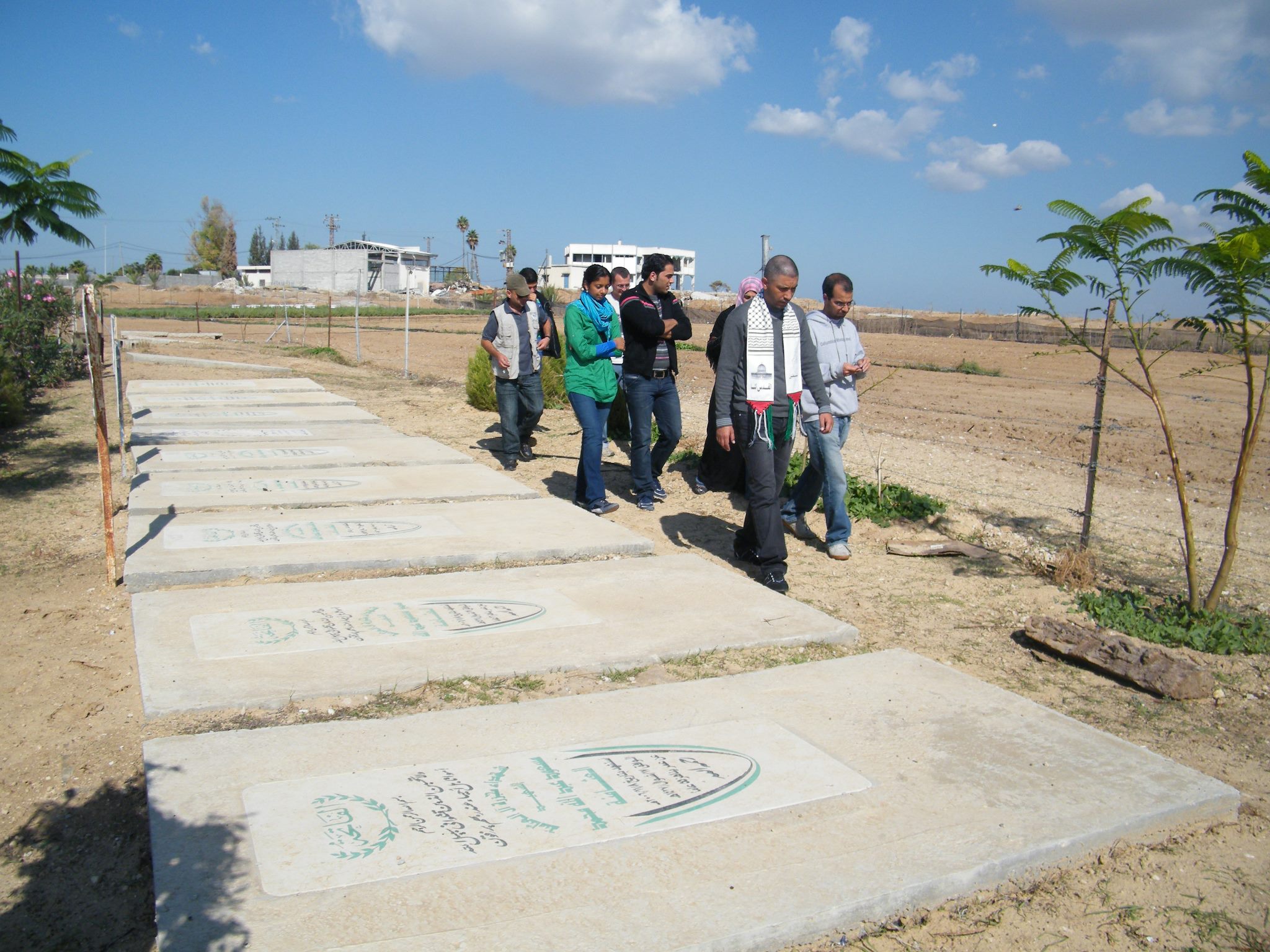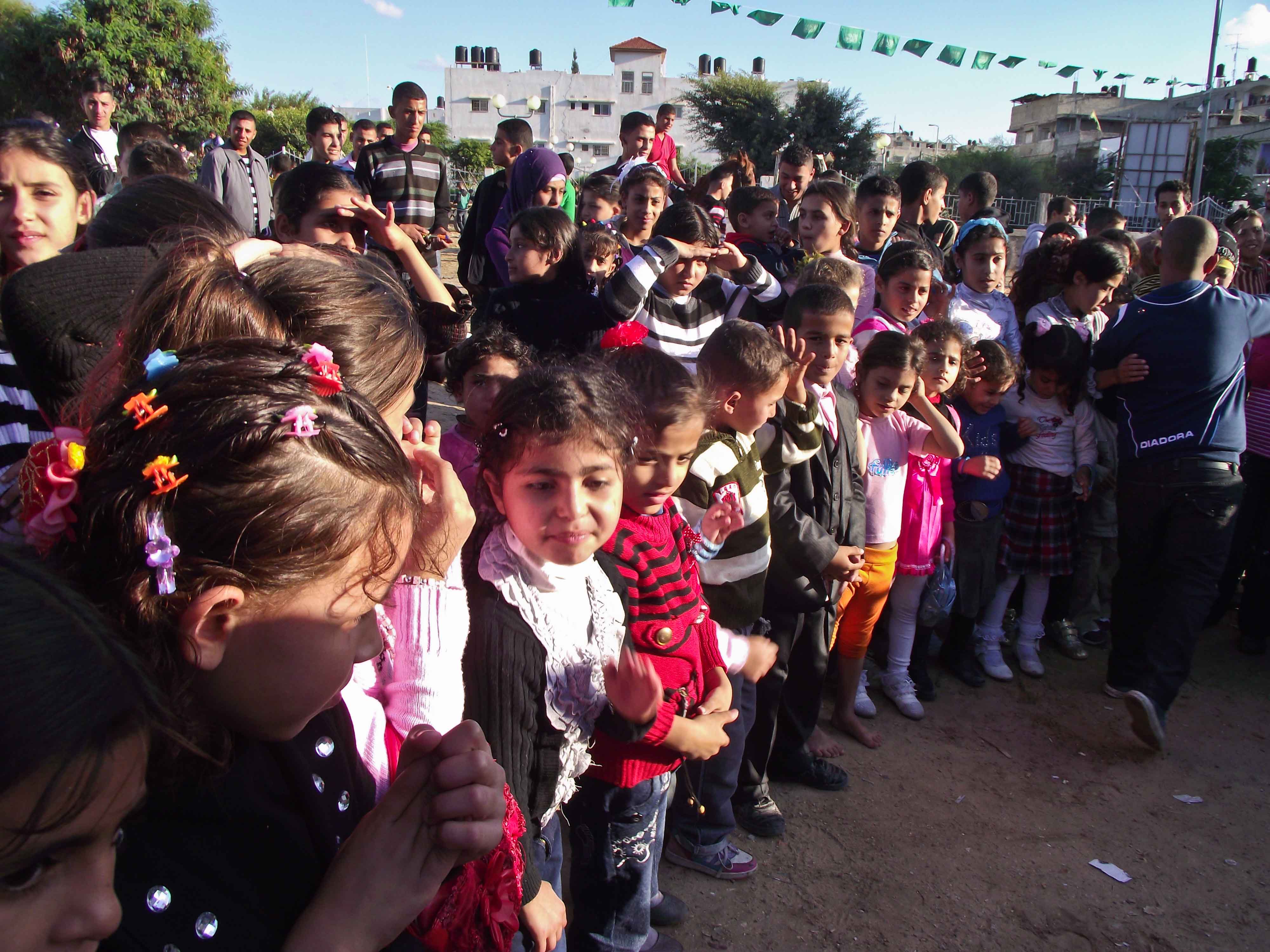Tag: Eid al-Adha
-
Remembrance in Beit Hanoun
by Nathan Stuckey 9 November 2011 | International Solidarity Movement, Gaza It is Tuesday, the third day of Eid, the Eid of the Sacrifice. We, the Beit Hanoun Local Initiative and the International Solidarity Movement, have gathered near the bombed remains of the Beit Hanoun Agricultural College like we do every Tuesday in preparation for…
-
Eid in Sheikh Jarrah
by Wahed Rajol 7 November 2011 | International Solidarity Movement, West Bank ISM has maintained a daily presence at the al-Kurd residence in Sheikh Jarrah since August 2009 when Israeli authorities paved the way for Israeli settlers to occupy the front part of the family home. On the first night of Eid al-Adha, on November…
-
Eid children’s fair in Beit Hanoun
by Radhika S. 6 November 2011 | International Solidarity Movement, Gaza In the afternoon, we went to a special Eid children’s fair at a park in Beit Hanoun, in the north of the Gaza Strip. Fifty percent of the population in Gaza is under the age of 18, and as we arrived, that statistic became…



